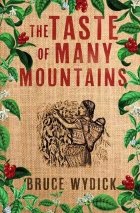Once I got to the University of Minnesota, as an accounting major, I decided I was going to minor in economics. That meant I started finding more Econ courses to take. Eventually I discovered that the business school wouldn't actually award a minor. I don't recall if I actually finished doing all the required coursework, or if I was a class short. But the point is that Economics really fascinated me.
The absolute best Econ course I took ever was an upper level course called something like Developmental Economics. We spent that quarter doing all kinds of reading, analyzing, and writing about the realities of economics in developing nations. College is a long time ago, and I don't remember the details, but I do remember that some of the projects involved the ideas of sweatshops and exploitation of native workers by Corporate America. One thing I definitely got out of that was the idea that exploitation isn't as clear-cut as it is usually portrayed. Economic realities collide with activist theories way too often.
Why am I talking about this?
Bruce Wydick, an economics professor, wrote the novel The Taste of Many Mountains. It was a fantastic read. Let's read the publisher description before I go on:
A research trip to Guatemala illuminates truths both intimate and global for three young travelers.The story centers around four graduate students (the three mentioned above, plus one already in Guatemala) and their research into just what happens along the entire chain from coffee plant to the coffee shop.
The graduate students arrived in Guatemala energized and ready to take on the world. They planned to follow the path of coffee beans from a peasant coffee-growing community in the western highlands through the chain of buyers, co-ops, exporters, and roasters, all the way to a café in San Francisco.
As the students investigate the profit made at every link in the coffee chain, they confront a series of unexpected events that illuminate globalization in surprising ways. They befriend a coffee-growing peasant family who recounts their family stories of fortune and tragedy wrought by coffee over generations of their Mayan family history. The relationship deepens between the family and the students. Then catastrophe strikes and the students must choose how to respond.
A surprising, beautifully engaging novel that illustrates the many ethical dilemmas of our increasingly globalized economy.
The story involves the relationships between these students, their research, their interactions with some of the coffee growing families in Guatemala, and how they start seeing things differently as they work through this project. There is also a fair amount of economics included, and a lot of history of Guatemala specifically, but also coffee-growing in general.
My teens have already earned a half credit in economics, but I'm planning to make this novel required reading for them. That may get an eyeroll, but I really do think they'll enjoy it once they get going.
Disclosure of Material Connection: I received this book free from the publisher through the BookLook Bloggers book review bloggers program. I was not required to write a positive review. The opinions I have expressed are my own. I am disclosing this in accordance with the Federal Trade Commission’s 16 CFR, Part 255: “Guides Concerning the Use of Endorsements and Testimonials in Advertising.”

No comments:
Post a Comment